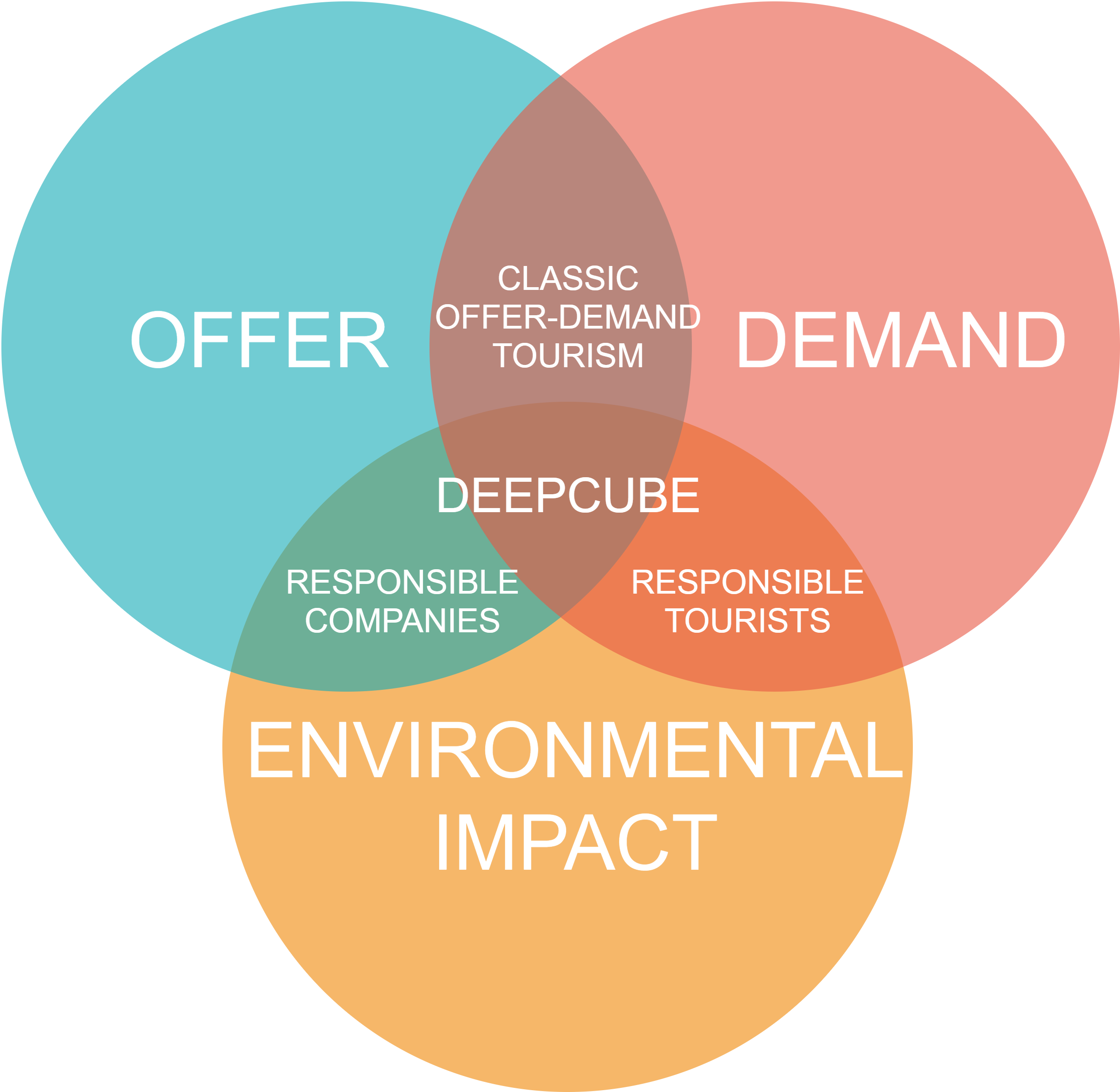


By Fabien Castel, Cathy Sahuc and Alejandro Diaz, Murmuration
According to the World Bank, “if we don’t do something immediately, climate change could push another 100 million people into poverty by 2030”. Climate change is several orders of magnitude stronger than the current COVID crisis we are facing.
This threat will have devastating effects, considering that between 1980 and 2017, extreme weather and climate events have already caused total economic losses of around €453 billion and cost the lives of more than 115,000 people in Europe, with cities recording the most damage.
Tourism is responsible for 8% of global greenhouse gas emissions (according to the Allenvi 2019 study), it is also a socio-economic catalyst and a factor in preserving the environment through the development of new trends such as sustainable tourism, in order to counteract the deleterious effects of mass tourism.
The values of sustainable tourism are grouped around three fundamental pillars: the social aspect by encouraging tolerance and respect for the lifestyles of local populations, the environmental aspect by placing the preservation of nature at the heart of tourism development, and the economic aspect by applying an equitable sharing of the economic spin-offs from tourism.
In order not to miss the opportunity to build a new tourism, it is even more important to be able to provide travellers and decision-makers with an assessment of the environmental pressure. Despite its obvious importance for all stakeholders, environmental information is not available. This is mainly due to the difficulty of assessing the impact of tourism activity, excluding transport. Given that tourism accounts for 10% of global GDP, the development of environmental indicators indexed to tourism activity is of great interest. The provision of such information at global, regional and local levels is of utmost importance for a sustainable environmental and economic tourism activity.
We believe that the analysis and evidence provided by satellite Earth observation data, coupled with a multitude of other data sources and organised by the latest advances in artificial intelligence, is essential to combine tourism, social and economic development and environmental preservation.
According to the recently published European White Paper on Artificial Intelligence (19 February 2020), artificial intelligence is a strategic technology that, among other things, “offers significant efficiency and productivity gains that can enhance the competitiveness of European industry and improve the well-being of citizens”, while “contributing to finding solutions to some of the most pressing societal challenges, including the fight against climate change and environmental degradation, as well as challenges related to sustainability and demographic change”.
At Murmuration, we see DeepCube as a first seed to plant a technological strategy based on Artificial Intelligence and the big Earth Observation data that will eventually germinate a new tourism industry based on the concept of sustainability.
Data is the key enabler here. We can mention of course the Copernicus program which is able to provide many interesting earth observation datasets with a high frequency of update. Meteorological models and specific business data collected from the tourism sector are also of big interest for what we want to accomplish. All this information allows us to estimate key environmental variables (air and water quality mainly) with a systematic method that can be applied globally, and to compute aggregated indices that make this information understandable and usable by stakeholders.
Thanks to the work being carried out on the DeepCube platform, we will evaluate the environmental impact of a tourism package using advanced machine learning techniques. We aim also at being able to forecast the impact of a yet to sell package, taking into account the seasonal particularities of the environmental factors. All these analyses should not be performed without taking into account business matters, and our goal is in the end to find the right balance between impact on the environment, revenue for the tourism stakeholders and services proposed to the tourists.
Being able to measure the real impact of a tourism package on the environment makes it possible to give environmentally committed tourists more sustainable alternatives to their trip. Furthermore, highlighting the civilian society’s interest for environment and sustainable tourism might impact public decision-makers and encourage them to orientate the tourism economy towards more sustainable alternatives, incorporating environmental criteria and thus changing the paradigm for tourism services price.

At Murmuration we are clearly aware that the tourism industry will need a deep shift in paradigm to fulfill the global sustainability constraints that we are all already facing. We are also aware of the high number of people committed to the environmental challenge. We want to promote responsible tourism. Working with objective and reliable information and models is the first fundamental step. DeepCube will allow us to take this step forward and look at the future with much more confidence!
